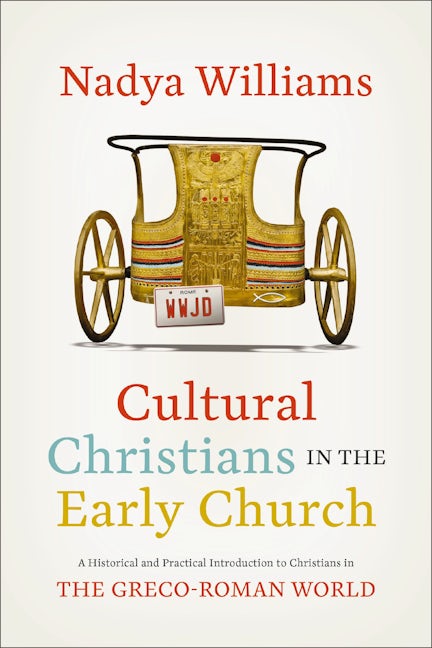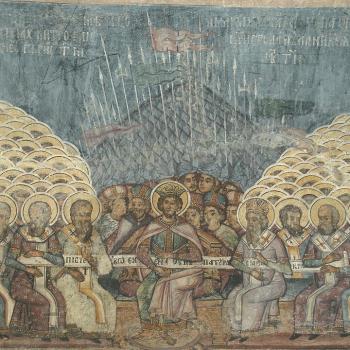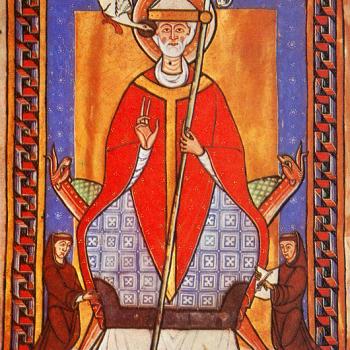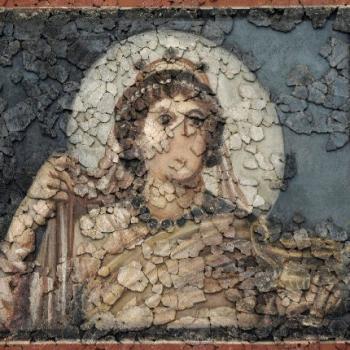
If you happen to be a Christian in America right now, I have good news and bad news for you. Good news: you’re probably a lot more like a first-century Christian than you had realized. Congratulations! This may be especially gratifying to hear if you are a member of a church that works hard to strip away all the unnecessary modern extras from worship and be just like the earliest Christians.
Now for the bad news: you’re probably a lot more like a first-century Christian than you had thought. Chances are, in at least some aspects of your life and walk, you are a cultural Christian, perhaps without even realizing this. What do I mean by this? For a more complete answer, you can read my book, Cultural Christians in the Early Church, coming this November from Zondervan Academic. But to explain more briefly, sometimes painting a picture in words is definitely worth the thousand (or so) words involved.
A guy walks into a church one Sunday. He comes back the next week. And the one after. After a while, he is baptized and is officially welcomed into the body. But as the rest of the congregation gets to know him, some red flags emerge that become a massive headache for the pastor and bother many members of the congregation. People’s lives can be so messy and unpredictable.
It turns out that the new convert is a member of a profession universally recognized as sinful. Not prostitution, but barely a step above it, as far as the Roman Empire saw it: acting. Tough luck. But then, a man must make a living somehow. Over time, convicted of the sinful nature of his work, incompatible with his new life in Christ, the man resigns his job. Unable to find another occupation, he begins, instead, to teach private lessons to members of the congregation. This may sound innocent enough, except he is teaching the very skills on which his old sinful profession was based—acting. In other words, he is corrupting others in the church. Scandalized and confused about the best course of action to take, the pastor at last writes to another pastor to ask for advice and help.
We learn about this story in one of the letters of Cyprian, bishop of Carthage in the mid-third century CE. Cyprian was the wise friend to whom the other pastor wrote. While we do not have the initial letter, we have Cyprian’s response. In that response, Cyprian kindly sympathized with the difficult position in which the other pastor found himself. Yes, this is a bit of a headache indeed, he affirmed. But how might we best care for this new convert, body and soul, Cyprian gently asks? Might he be engaging in this scandalous behavior because he has no other means of supporting himself? Cyprian ends with offering his own funds to support the convert in question while he retrains for another job, if his home church is unable to help.
I find stories like this one fascinating. We get here a glimpse of the “regular” people in the early churches; one of the nameless multitudes, if you will. More than that, we learn the story of a convert that shows that people from all kinds of backgrounds were coming into the church in the mid-third century, even as the first ever empire-wide persecution had probably just concluded, and a vicious pandemic was raging.
But the reason I include this story (and many others like it) in my book is because it challenges the assumption of my students and many others I have talked to over the years, that the early Christians were whole-heartedly and zealously devoted to their faith. These were, after all, the people who chose (in some cases) to die the death of martyrs rather than renounce their faith. Surely, they were all heroically devout and devoted, right? Well, maybe not.
At the same time, we hear about the role that the love and service-minded heart of early Christians played in bringing others to the faith—Rodney Stark had spent much of his career writing about the transformational role of this care in bringing about conversions. And yet, here we see a pastor who is rather exasperated with a problematic convert in his church and needs another pastor to serve as the practical voice of wisdom in resolving the situation compassionately. All of these things—a heart for martyrdom and for serving others and bringing them into the church, but also a profound selfishness and an easy frustration with those who can’t just get their act together already and stop embarrassing us—can be true all at once for people in the early church. Just like these same things can be true all at once for many (or all?) of us.
Reading the stories of many of the early Christians, I find that they were surprisingly like us. They were influenced by the surrounding culture in their thinking about finances, food, marriage and sexuality, patriotism and nationalism, and so on. More than anything, it is convicting how many of them, like our actor friend whose story we just learned, went to church on Sunday, but spent the rest of the week compartmentalizing their faith—just like so many Christians do today, often inadvertently, without meaning to. And it is convicting, furthermore, to see that at times, cultural sin did not flow from a rebellious heart, but simply resulted from a lack of better options. How well do we today support those in our own churches who seem deeply sinful, but perhaps are more similar to this actor convert than to someone rebelliously fighting against God?
Ancient historians generally fall into two very broad categories: those who emphasize how different people in antiquity were from us, and those who emphasize how similar the human experience has been. In my writing, including in this book, I largely lean on the latter approach. We think of the ancient world as this weird place, inhabited by people who were very different from us. In many ways this is true. But I want to show ways in which the lives and everyday struggles of people in the ancient world, including in the early churches, are much more similar and relatable to ours than we might have imagined. Surprisingly often, their stories are our stories too.
















